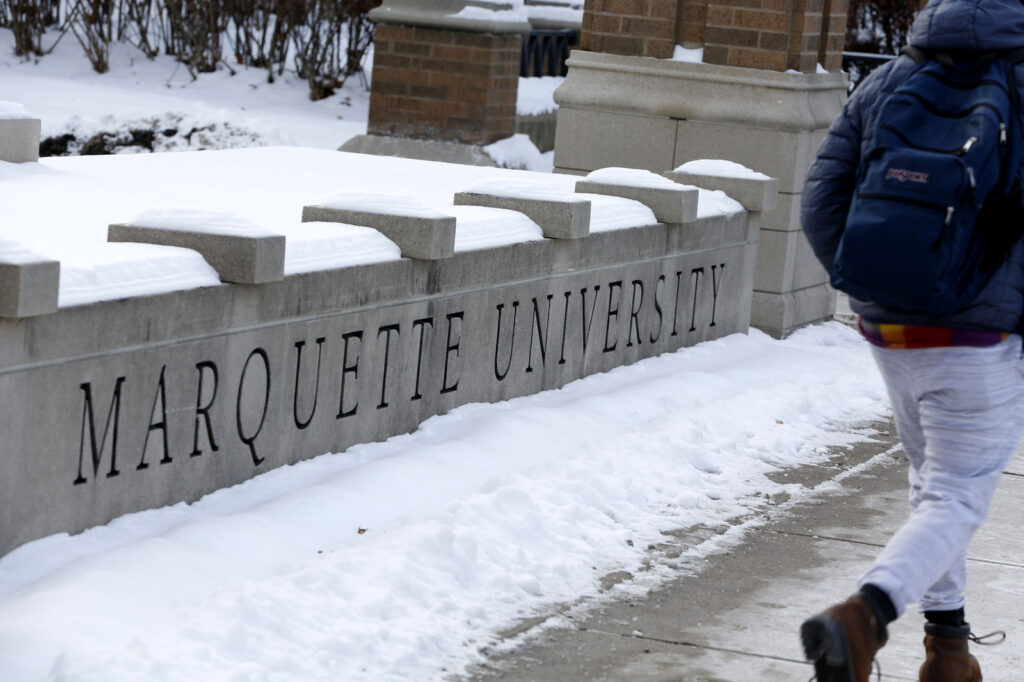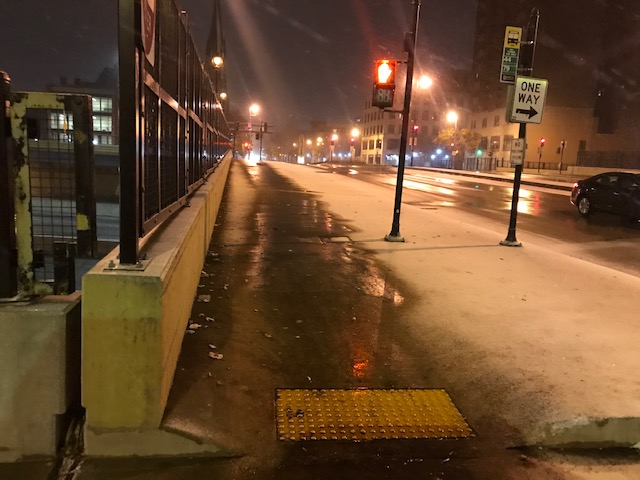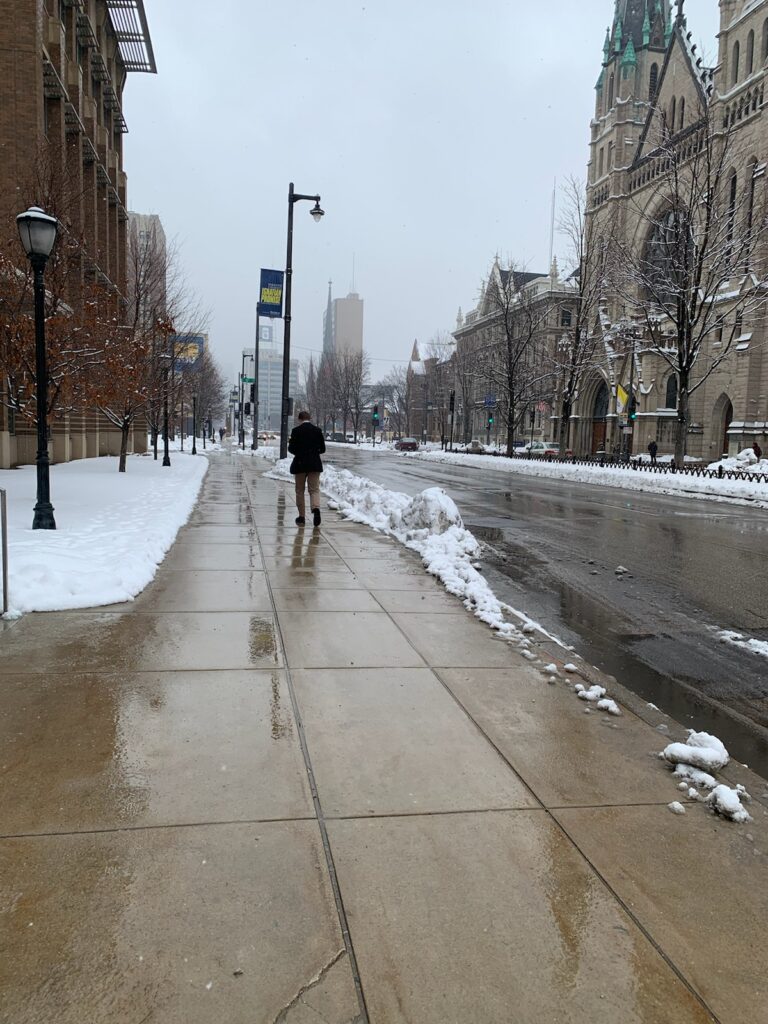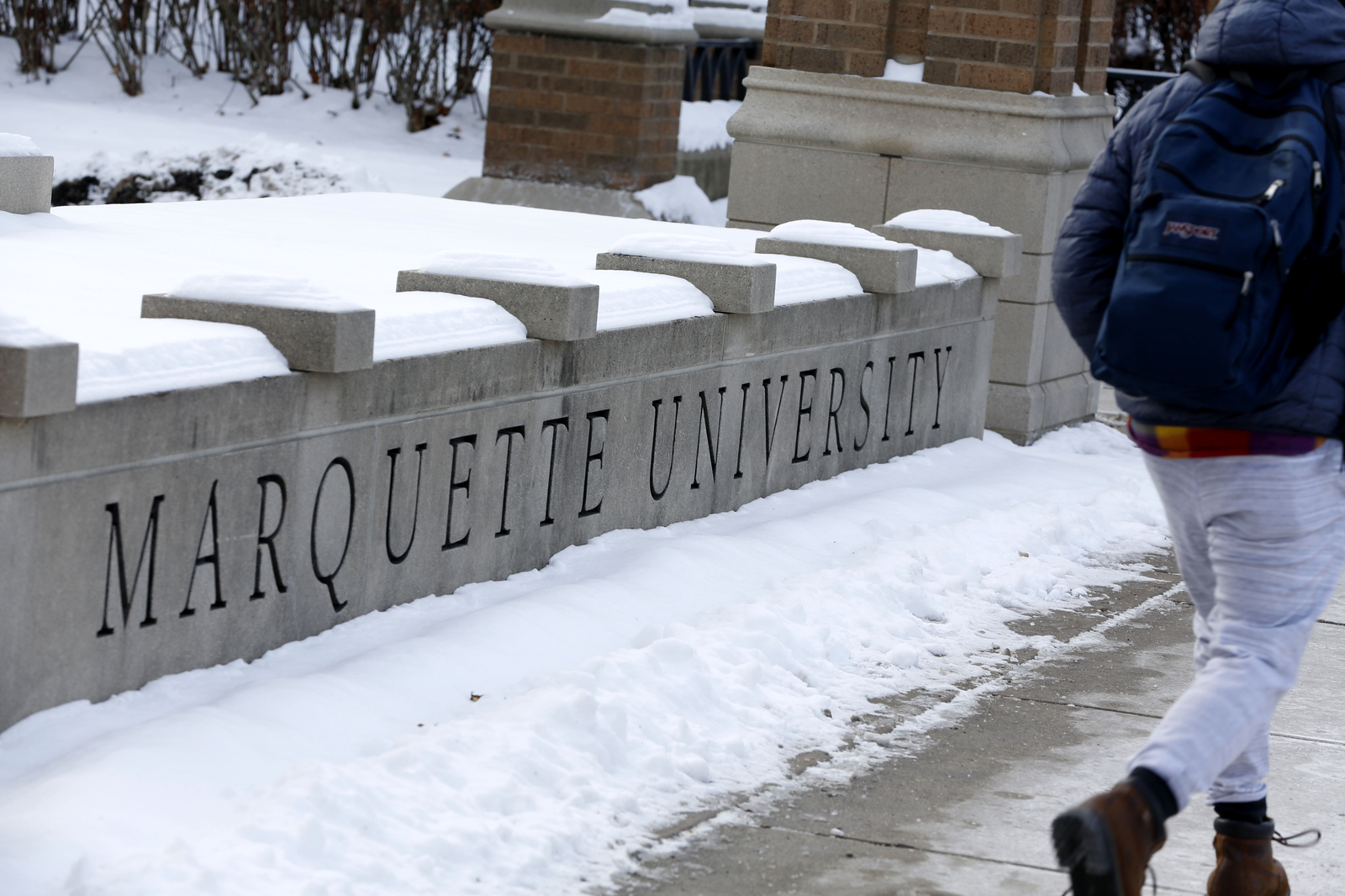
By Shelby Williamson, senior communication specialist in the Office of Marketing and Communication
Like every year before, this winter has brought cold temperatures, freezing rain and snow to Marquette University.
But a closer look shows something different is happening on campus this season: Sidewalks, crosswalks and streets are clearer and less icy, and parking lots are without their usual harsh layer of salt residue.
The improved conditions are the result of a new liquid de-icer, or “brine,” now being used by Marquette grounds crews. It’s a method that not only melts snow and ice quicker to make travel safer, it’s more sustainable and better for the environment.

Chris Bartolone, assistant director of facilities and campus services, said the department began evaluating its use of traditional rock salt, and its effectiveness, in 2018 after a strike at a Canadian salt mine caused a salt shortage that lead to significant price hikes.
Around the same time, the snow and ice removal industry began transitioning from salt to liquid de-icer. Marquette is now on board, and the new system is estimated to cut the university’s salt usage by one-third.
“We aren’t afraid to admit we didn’t know a lot about the other means to de-ice,” Bartolone says. “Now we know how great brine is and we are seeing a real difference.”
University salt trucks were recently equipped with brine storage tanks. The tanks, located underneath the traditional salt spreaders in the truck beds, feature jets that spray brine — a saltwater mixture – onto dry salt as it drops out of the truck and onto spinners that disperse it across the ground.

Salt works best when it’s wet, Bartolone points out. The liquid brine activates the salt so when it hits the ground it immediately goes to work, melting the ice.
In years past, grounds crews found themselves in a frustrating cycle of salting that yielded poor results.
“We would go out and drop dry salt and it would hit the pavement, bounce around and not melt anything,” Bartolone says. “And then we would get calls about it being icy, and in wanting to do something in response to help, what was our solution? We would go out and salt some more.”
A lot of that salt, he said, would eventually be plowed to the sides of streets and pushed onto grassy areas. Springtime would then reveal large patches of dead grass or “salt burns” which would need to be replaced with new grass beds.
He added that facilities services has even had to replace parts of building entrances damaged by large amounts of salt tracked in by visitors.
According to Mike Jahner, director of facilities management, the new de-icing system lets crews target specific areas and do their job in a cleaner sweep. As Bartolone points out, “when looking out the back of a salter, you can literally see where the brine is working.”
The brine isn’t just used after snow and ice is already on the ground, though.
Jahner says crews are using a new gator — a small all-terrain utility vehicle — equipped with a hose, to pre-treat sidewalks, streets and parking lots, as well as pavement on stairs and near building entrances that were previously difficult to reach.

He says the ability to pre-treat these areas, especially ahead of subzero temperatures, prevents snow and ice from bonding to cement. This is crucial, he adds, because when ice and snow bonds with cement, plowing and shoveling becomes extremely difficult — and the longer snow and ice remain in contact with cement, combined with dry salt, the more corrosive the effect.
In all, Jahner says the hope is the university’s investment in the new liquid de-icing system will result in less resources used, the preservation of grassy areas, the extended life of cement, cleaner buildings and most importantly a safer campus.

Jahner says the added bonus is that the parking lots will not be coated in a thick, ugly salt film that so often stains clothes and shoes.
Using brine is just one of several things Marquette is doing to be more sustainable.
“As far as this ice and snow control initiative goes, it seems to be paying dividends, but we really are just on the ground floor,” Bartolone says.
One thing is for sure, though — that ground floor will not be covered in salt.
Other university sustainability efforts include:
– Storm water retention at the Athletic and Human Performance Research Center
– Composting bins for food and cafeteria waste at university dining halls
– Marquette University Neighborhood Kitchen recovers unused food to re purpose
– Garden plots outside of the Alumni Memorial Union and O’Donnell Hall
– Replacing 240-watt high-pressure sodium light bulbs with 80-watt LED lights in buildings across campus




